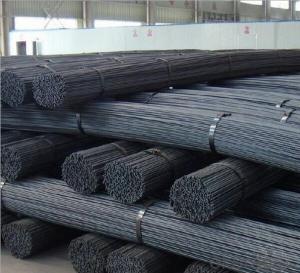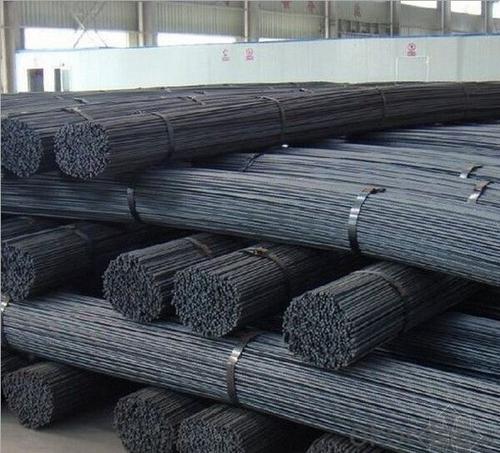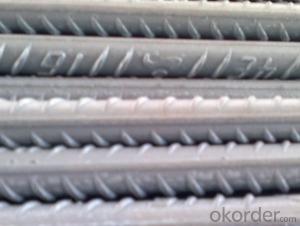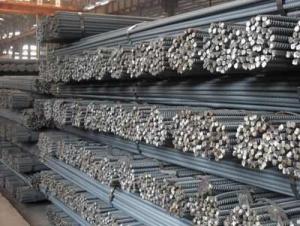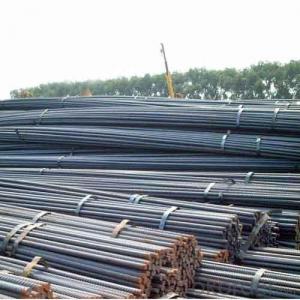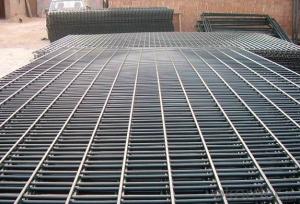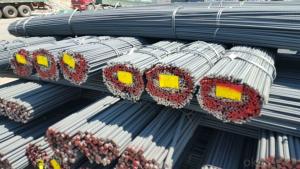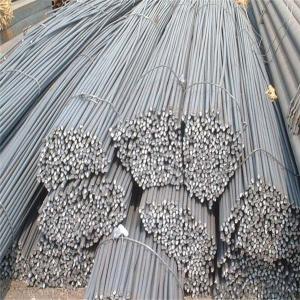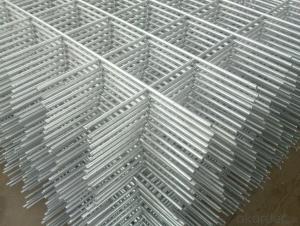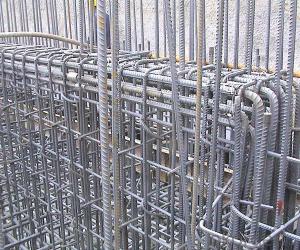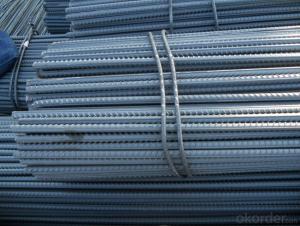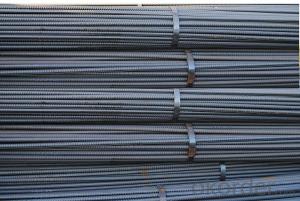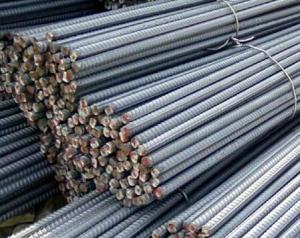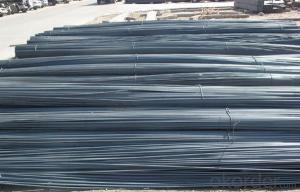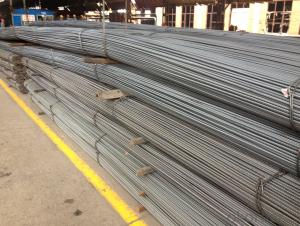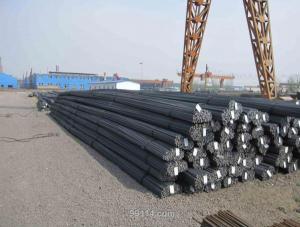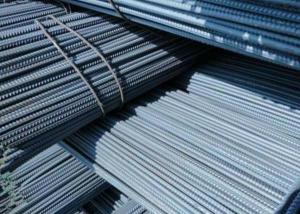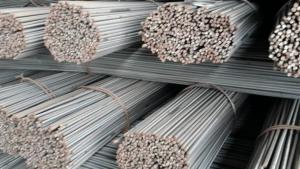HRB 400/ 500 Reinforcing Deformed Steel Round Bar with Cheap Price
- Loading Port:
- Tianjin
- Payment Terms:
- TT OR LC
- Min Order Qty:
- 100 m.t.
- Supply Capability:
- 100000 m.t./month
OKorder Service Pledge
OKorder Financial Service
You Might Also Like
Specification
HRB 400/ 500 Reinforcing Deformed Steel Round Bar with Cheap Price
Products Description:
1. Diameter: 5.5mm-10mm rounds reinforcing steel bar
10m- 40 rods reinforcing deformed steel bar
2. Length: 6m, 9m, 12m or customized
3. Standard: GB, ASTM, AISI, SAE, DIN, JIS, EN. OEM technology - send detailed technical parameters for accurate quotation.
4. Produce Process: smelt iron - EAF smelt billet - ESR smelt billet - hot rolled or forged to get the steel round bar and plate
5. Heat Treatment: annealing, normalizing, tempering, quenching
6. Surface Treatment: Black
7. Quality Assurance: We accept third party inspection for all orders.
You can ask testing organizations such as SGS, BV, etc. to test our products before shipping.
Theoretical weight and section area:
| Diameter(mm) | Section area (mm²) | Mass(kg/m) | Weight of 12m bar(kg) |
6 | 28.27 | 0.222 | 2.664 |
| 8 | 50.27 | 0.395 | 4.74 |
| 12 | 113.1 | 0.888 | 10.656 |
| 16 | 201.1 | 1.58 | 18.96 |
| 20 | 314.2 | 2.47 | 29.64 |
| 25 | 490.9 | 3.85 | 46.2 |
| 32 | 804.2 | 6.31 | 75.72 |
| 40 | 1257 | 9.87 | 118.44 |
| 50 | 1964 | 15.42 | 185.04 |
Technical Datas:
Grade | Technical data of the original chemical composition (%) | |||||
| C | Mn | Si | S | P | V | |
| ≤0.25 | ≤1.60 | ≤0.80 | ≤0.045 | ≤0.045 | 0.04-0.12 | |
HRB400 | Physical capability | |||||
| Yield Strength (N/cm²) | Tensile Strength (N/cm²) | Elongation (%) | ||||
| ≥400 | ≥570 | ≥14 | ||||
Products Show:
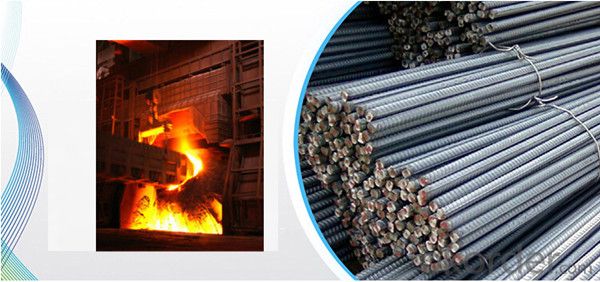
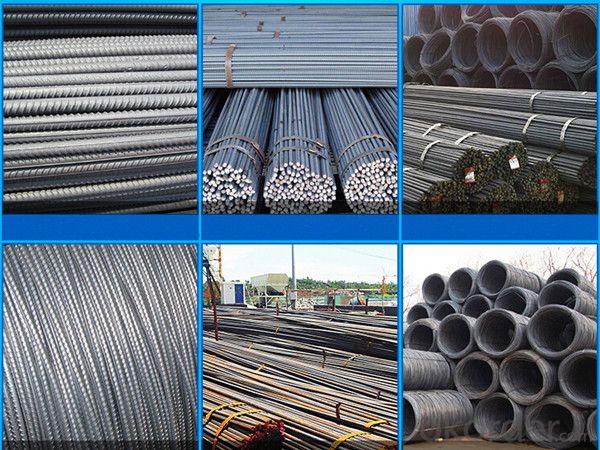
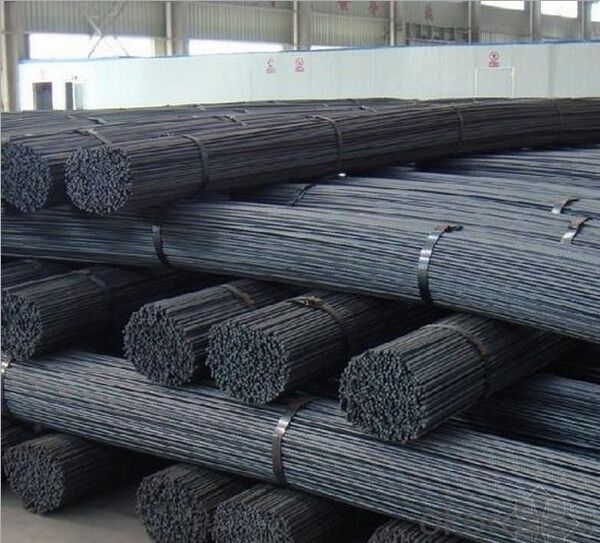
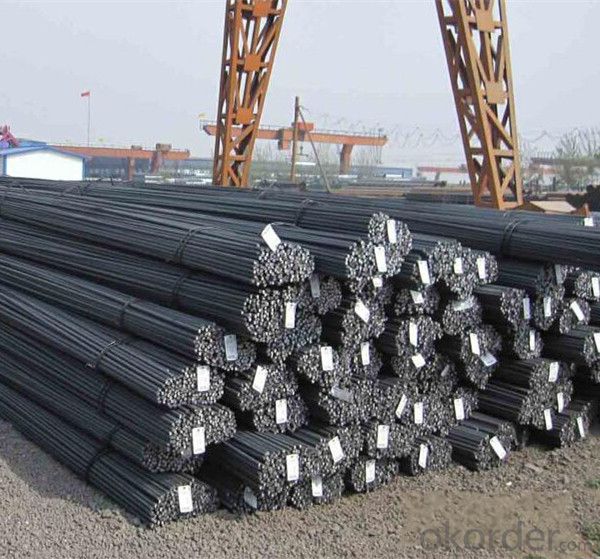
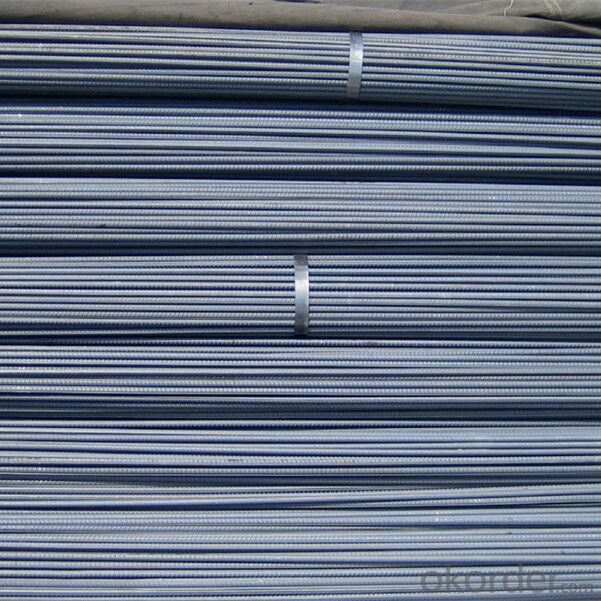
Packages and Shipping:
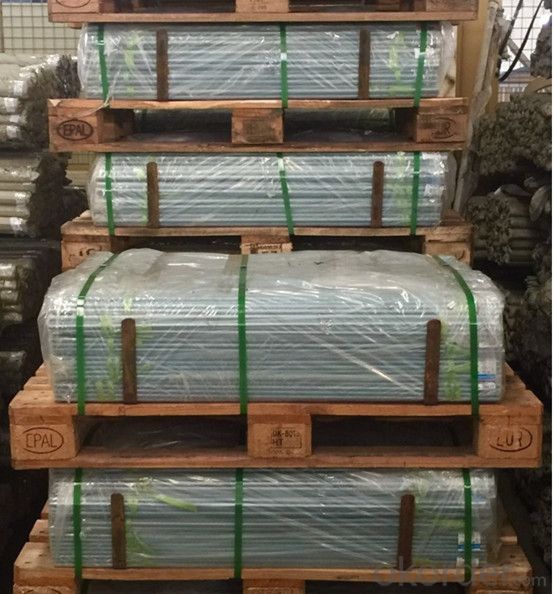
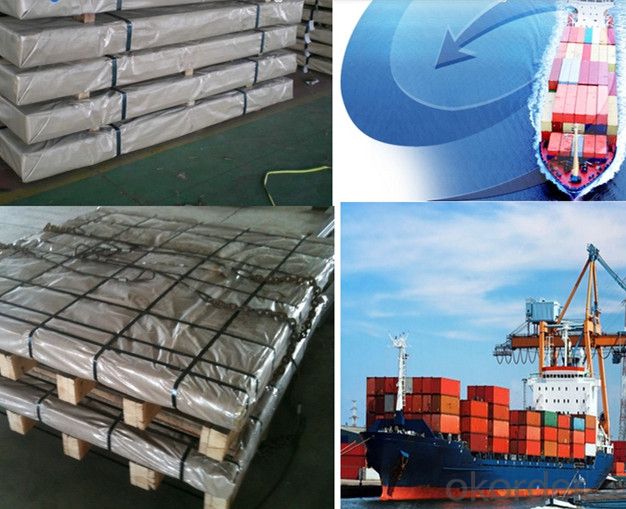
FAQ:
1. Your advantages?
Professional products inquiry, products knowledge train (for agents), smooth goods delivery, excellent customer solution proposale
2. Test & Certificate?
SGS test is available, customer inspection before shipping is welcome, third party inspection is no problem
3. Payment Terms?
30% TT as deposit and 70% before delivery. Or Irrevocable L/C at sight.
4. Trading Terms?
EXW, FOB, CIF, FFR, CNF
5. After-sale Service
We provide the services and support you need for every step of our cooperation. We're the business partner you can trust. For any problem, please kindly contact us at any your convenient time.
- Q: How are steel rebars bent or shaped according to construction needs?
- Steel rebars are bent or shaped according to construction needs using specialized tools such as rebar benders and cutters. These tools apply force to the rebars, causing them to bend or shape into the desired form. The rebars can be bent manually or by using hydraulic or electric machines for more precise and efficient results. The bending process ensures that rebars can be tailored to fit specific construction requirements, such as reinforcing concrete structures or creating curved elements.
- Q: Can steel rebars be used in road and bridge construction?
- Yes, steel rebars can be used in road and bridge construction. Steel rebars provide structural integrity and strength to reinforce concrete structures, making them suitable for use in the construction of roads and bridges. They enhance the durability, load-bearing capacity, and resistance to cracking and deformation in these infrastructure projects.
- Q: Can steel rebars be used in the construction of dams or reservoirs?
- Yes, steel rebars can be used in the construction of dams or reservoirs. Steel rebars are commonly used as reinforcement in concrete structures, including dams and reservoirs, to provide strength and stability. They help to distribute and resist the tensile forces that can occur in these structures due to water pressure and other external loads. Steel rebars are corrosion-resistant, durable, and have high tensile strength, making them an ideal choice for such applications. Additionally, they can be easily shaped and installed, providing flexibility in the design and construction process.
- Q: How do steel rebars affect the flexibility of concrete structures?
- Steel rebars play a critical role in enhancing the flexibility and overall strength of concrete structures. When incorporated into concrete, rebars offer essential tensile strength to resist bending and stretching forces that can lead to cracks or failure in the structure. Concrete possesses strength in compression but lacks it in tension. This means that it can bear substantial weight pushing down on it, but it is susceptible to cracking or breaking when subjected to pulling or stretching forces. By integrating steel rebars into the concrete, its tensile strength increases significantly, enabling it to better withstand these tension forces. The inclusion of rebars in concrete structures allows for the more even and efficient distribution of loads. When exposed to external forces like wind, earthquakes, or heavy loads, the rebars assist in dispersing stress throughout the concrete, preventing concentrated stress points and reducing the risk of structural failure. Moreover, steel rebars also enhance the flexibility of concrete structures. By providing additional support and reinforcement, rebars enable the concrete to bend and flex to a certain degree. This flexibility is particularly crucial in areas prone to seismic activity or excessive vibrations. Flexibility in concrete structures is vital as it permits the building to absorb and dissipate energy during earthquakes or other dynamic forces. Without the presence of rebars, concrete structures would be more rigid and susceptible to cracking or collapsing under such conditions. In conclusion, steel rebars significantly enhance the flexibility and overall performance of concrete structures. By offering the necessary tensile strength and reinforcement, they enable the concrete to better withstand bending, stretching, and external forces, thereby reducing the risk of structural failure and ensuring the construction's durability and longevity.
- Q: Can steel rebars be used in underground parking structures?
- Yes, steel rebars can be used in underground parking structures. Steel rebars provide strength and reinforcement to concrete structures, making them suitable for supporting the heavy loads and structural demands of underground parking facilities.
- Q: What is the role of steel rebars in tunnel shaft construction?
- The role of steel rebars in tunnel shaft construction is to provide strength and reinforcement to the concrete structure. These rebars are embedded within the concrete to enhance its tensile strength and prevent cracks or failures in the tunnel shaft. They help distribute and transfer loads, ensuring the structural integrity and durability of the tunnel shaft.
- Q: How do steel rebars affect the overall construction cost?
- Steel rebars can significantly affect the overall construction cost. While they add to the initial expenses, their use improves the structural integrity and durability of the building. By providing strength and reinforcement to concrete structures, steel rebars reduce the risk of cracks, deformation, and collapse over time. In the long run, this can lead to savings in maintenance and repair costs, making steel rebars a cost-effective investment in construction projects.
- Q: Can steel rebars be used in pedestrian bridge construction?
- Yes, steel rebars can be used in pedestrian bridge construction. Steel rebars are commonly used as reinforcement in concrete structures, including bridges. They enhance the structural integrity and strength of the bridge, ensuring its ability to withstand various loads and forces. Steel rebars provide the necessary reinforcement to resist tension, bending, and shear forces, making them an ideal choice for pedestrian bridge construction. Additionally, steel rebars have excellent durability, corrosion resistance, and are readily available, making them a cost-effective and reliable option for bridge construction.
- Q: Can steel rebars be used in structures with high moisture content in the environment?
- Structures in high-moisture environments can utilize steel rebars, but precautions must be taken to avoid corrosion. The corrosion process of steel is accelerated by moisture, which can lead to long-term structural problems. To reduce this risk, various measures can be taken. One option is to consider using corrosion-resistant steel rebars, such as stainless steel rebars. These rebars are specifically designed to withstand corrosion in high-moisture environments, making them suitable for structures exposed to moisture. Another important measure is maintaining an adequate thickness of concrete cover to protect the rebars from direct contact with moisture. Sufficient concrete cover acts as a barrier, preventing moisture from reaching the steel surface and minimizing the risk of corrosion. Additionally, the application of waterproofing materials and coatings can effectively prevent moisture from entering the structure. These materials create a protective layer on the concrete surface, preventing water penetration and reducing the likelihood of corrosion. Regular inspections and maintenance are crucial for structures in high-moisture environments. Periodic inspections can help identify early signs of corrosion or damage, enabling timely repairs or preventive actions. In conclusion, while steel rebars can be used in structures with high moisture content, it is essential to implement appropriate measures to prevent corrosion. The use of corrosion-resistant rebars, maintaining proper concrete cover, and applying waterproofing materials can greatly enhance the durability and longevity of such structures.
- Q: What is the role of steel rebars in preventing structural collapse?
- Steel rebars play a crucial role in preventing structural collapse by reinforcing concrete structures. Concrete, although strong in compression, is relatively weak in tension. This is where steel rebars come into play, as they effectively enhance the tensile strength of the concrete. When structural loads are applied to a building or other concrete structure, the rebars distribute the load across a wider area, preventing the concrete from cracking and failing under the stress. By providing a means for the concrete to resist tension and bending forces, steel rebars help maintain the integrity and stability of the structure. In addition to improving tensile strength, rebars also enhance the overall ductility and flexibility of the concrete. This is critical during events such as earthquakes or high winds, where structures need to withstand significant lateral forces. The presence of rebars helps the concrete to absorb and dissipate these forces, reducing the risk of structural failure. Moreover, steel rebars also prevent structural collapse by resisting the effects of corrosion. When embedded in concrete, rebars are protected from moisture and other corrosive elements, ensuring their long-term durability and ability to support the structure. In summary, steel rebars are essential components in preventing structural collapse. They reinforce concrete structures, enhance tensile strength, improve ductility, resist corrosion, and ultimately contribute to the overall safety and stability of buildings and other concrete constructions.
Send your message to us
HRB 400/ 500 Reinforcing Deformed Steel Round Bar with Cheap Price
- Loading Port:
- Tianjin
- Payment Terms:
- TT OR LC
- Min Order Qty:
- 100 m.t.
- Supply Capability:
- 100000 m.t./month
OKorder Service Pledge
OKorder Financial Service
Similar products
Hot products
Hot Searches
Related keywords
